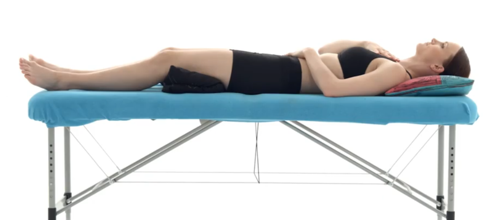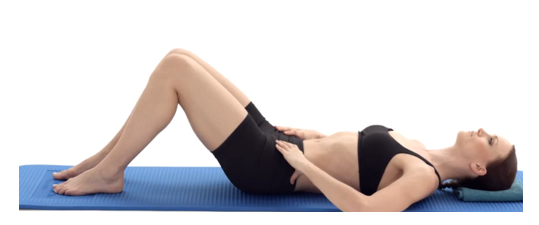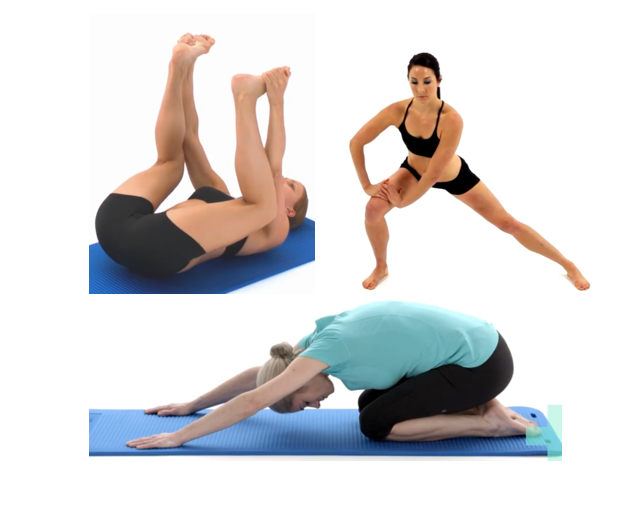Beyond the Baby Blues: How Pelvic Floor Therapy Supports Postpartum Recovery
January 20, 2025
Postpartum pelvic floor therapy is about more than addressing physical symptoms—it’s a powerful way to support emotional and mental well-being for new moms. Challenges like incontinence, painful sex, or prolapse can leave moms feeling frustrated, disconnected, and overwhelmed. These physical symptoms often carry an emotional weight, affecting how we see ourselves and our ability to feel at home in our bodies.
By integrating postpartum pelvic floor therapy into your recovery, you’re not just addressing the physical challenges of childbirth but also building a stronger connection between your body and mental health. Samantha Zimmerman, PT, DPT, OCS, SCS, CSCS from Elite PT Care, explains that common postpartum issues, such as bladder urgency or diastasis recti, can take a toll on emotional well-being, making targeted care essential.
What Is the Pelvic Floor and Why Does It Matter Postpartum?
The pelvic floor is a network of muscles and ligaments at the base of the pelvis that supports essential functions like bladder control, sexual health, and core stability. It also plays a vital role in hip and spine mobility. During pregnancy, these muscles endure significant stress, stretching to accommodate a growing baby and often sustaining injury during childbirth.
Common postpartum pelvic floor issues include:
- Incontinence: Leaking urine when sneezing, coughing, laughing, or exercising.
- Prolapse: A feeling of heaviness or pressure caused by the descent of pelvic organs (bladder, uterus, or rectum).
- Painful sex: Often due to scarring, spasms, or muscle weakness.
- Constipation: Tight pelvic floor muscles can make bowel movements painful or infrequent.
- Low back or hip pain: Caused by inefficient load transfer due to weakened muscles or diastasis recti.
- Diastasis recti: A separation of abdominal muscles, leading to a “doming” effect and reduced core stability.
These issues are common but often misunderstood or ignored, leaving moms to feel isolated and unsupported.
How Childbirth Impacts the Pelvic Floor
Samantha Zimmerman notes that childbirth—whether vaginal or cesarean—can lead to significant changes in the pelvic floor. Vaginal deliveries often result in tearing, which affects up to 90% of first-time moms, while cesarean deliveries can still lead to pelvic floor issues due to prolonged labor or pushing before surgery. Scar tissue, stretching, and muscle imbalances are common outcomes, which can lead to chronic pain or dysfunction if left untreated.
Moms often assume these symptoms are just part of being a mother, but as Samantha stresses, common doesn’t mean normal. Addressing these challenges through postpartum pelvic floor therapy can help moms regain control, confidence, and comfort.
How Postpartum Pelvic Floor Therapy Works
Pelvic floor therapy is tailored to each individual’s unique needs. The first step is an evaluation, which includes a discussion of your symptoms and a gentle assessment of your pelvic floor. This may involve an internal exam to assess strength and identify trigger points but will always be conducted with your comfort in mind. From there, a personalized plan is developed, which may include:
- Diaphragmatic Breathing:
Synchronizing your breath with pelvic floor relaxation. Place one hand on your chest and one on your abdomen. Breathe deeply, aiming to move only your abdominal hand. This helps the pelvic floor and diaphragm work in harmony.
- Core Engagement:
Activating the transverse abdominis, the deep core muscle that supports your spine and pelvis. Find it by placing your fingertips on your hip points, rolling them slightly inward, and coughing to feel the muscle engage. Practice pulling your belly button toward your spine and holding while breathing.
- Stretching:
Gentle stretches like child’s pose, happy baby, and adductor stretches can release tension in the pelvic floor. Aim for 3 rounds of 30 seconds each.
By addressing both strength and mobility, therapy helps moms recover functionality and reduce pain. Samantha emphasizes that while strengthening is important, overuse of pelvic floor muscles can also cause problems, making individualized care essential.
Why Pelvic Floor Therapy Matters for Mental Health
Physical symptoms like incontinence, pain, or prolapse don’t just affect your body—they can weigh heavily on your mind. Many moms feel embarrassed or ashamed of these issues, leading to isolation and self-doubt. These feelings can exacerbate postpartum depression and anxiety, making it harder to enjoy motherhood or feel confident in your role.
Samantha Zimmerman highlights how pelvic floor therapy bridges the gap between physical and emotional health. When moms feel stronger, more in control, and less limited by physical symptoms, their mental well-being improves. Therapy isn’t just about recovery—it’s about empowerment.
Signs You May Benefit from Postpartum Pelvic Floor Therapy
You might consider pelvic floor therapy if you experience:
- Leaks of urine or stool with or without triggers.
- Bladder urgency (peeing more than 6-7 times daily or feeling a strong urge frequently).
- Pain during sex or lack of sensation.
- Heaviness in your pelvic floor.
- Constipation or difficulty with bowel movements.
- Pain in your back, hips, or c-section scar.
- Bulging or doming of your abdomen during activity.
- Difficulty using tampons due to pain or them falling out.
If these symptoms sound familiar, don’t wait. Pelvic floor therapy can help you feel like yourself again.
Your Next Step in Postpartum Recovery
Prioritizing your pelvic floor health is an investment in your overall well-being. Samantha Zimmerman, DPT, emphasizes that pelvic floor therapy can help moms resolve symptoms even years or decades after childbirth. It’s never too late to start.
For more resources on postpartum recovery and mental health, visit my blog.
If you’re ready to take the first step, connect with Samantha Zimmerman, DPT, at Elite PT Care.
Taking care of yourself isn’t just about physical recovery—it’s about giving yourself the grace and support to thrive. By incorporating postpartum pelvic floor therapy, you’re building a stronger foundation for your body and mind. You deserve it.
PLEASE COMMENT BELOW